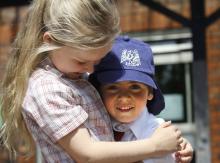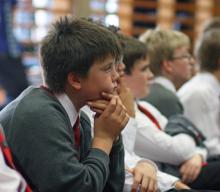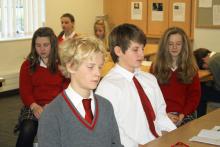Our children absorb their world. If a childhood in school is filled with acts of kindness witnessed and received, our children will learn to care for themselves and for others. If a childhood in school is built on relationships of affection and trust, our children will learn to trust themselves and to give to others. The way we go about our lives with them, in the classroom or the playground, fosters our children’s natural generosity of spirit, their ability to work with and for others, and strengthens each child's sense of the difference that they can make.
Kindness begins with understanding ourselves and how we feel about and respond to our world.
They make that difference explicitly when they contribute so willingly to the life of their community and to lives beyond our community, in the committees the children run, in the amazing work they do for charity. And in making a difference to others, they make a difference to themselves. If you want to make others happy, do good to others. If you want to be happy yourself, do good to others. So we teach kindness, a sense of community, an understanding of others' needs throughout the children's lives at school.
Kindness begins with understanding ourselves and how we feel about and respond to our world. The Ìýunique Emotions for Learning programme that we have developed over the last decade teaches children to recognise how they feel about their work and about their lives, and gives them tools for solving problems, starting from their very first day in Kindergarten. Emotions for Learning pervades the approach to all aspects of our little ones' lives, teaching the children practical techniques from mindfulness to peer massage to meditation, building the children's capacity for compassion for themselves and for others, giving them tools for solving problems for themselves in the classroom or the playground, building their emotional resilience and giving them the tools for a happy childhood.
How we learn about feeling and how we feel about learning are deeply linked. When our oldest children follow a course in Mindfulness, they are learning how to manage their thoughts and feelings and they are learning how to give attention, to concentrate, to focus. Every lesson begins with a focusing moment, with attention to the children's readiness for learning. The quality of learning is directly related to our care for ourselves and others.





